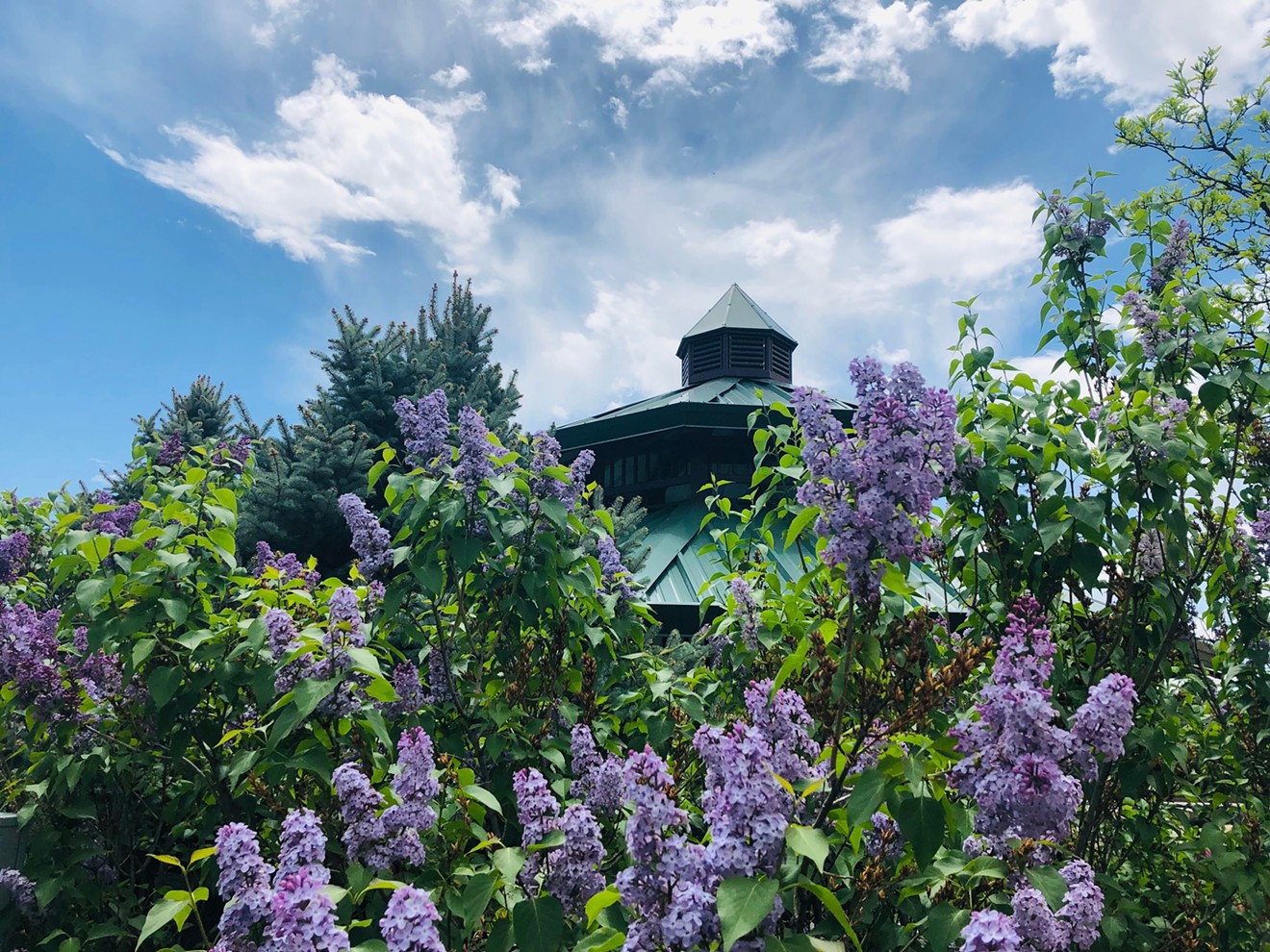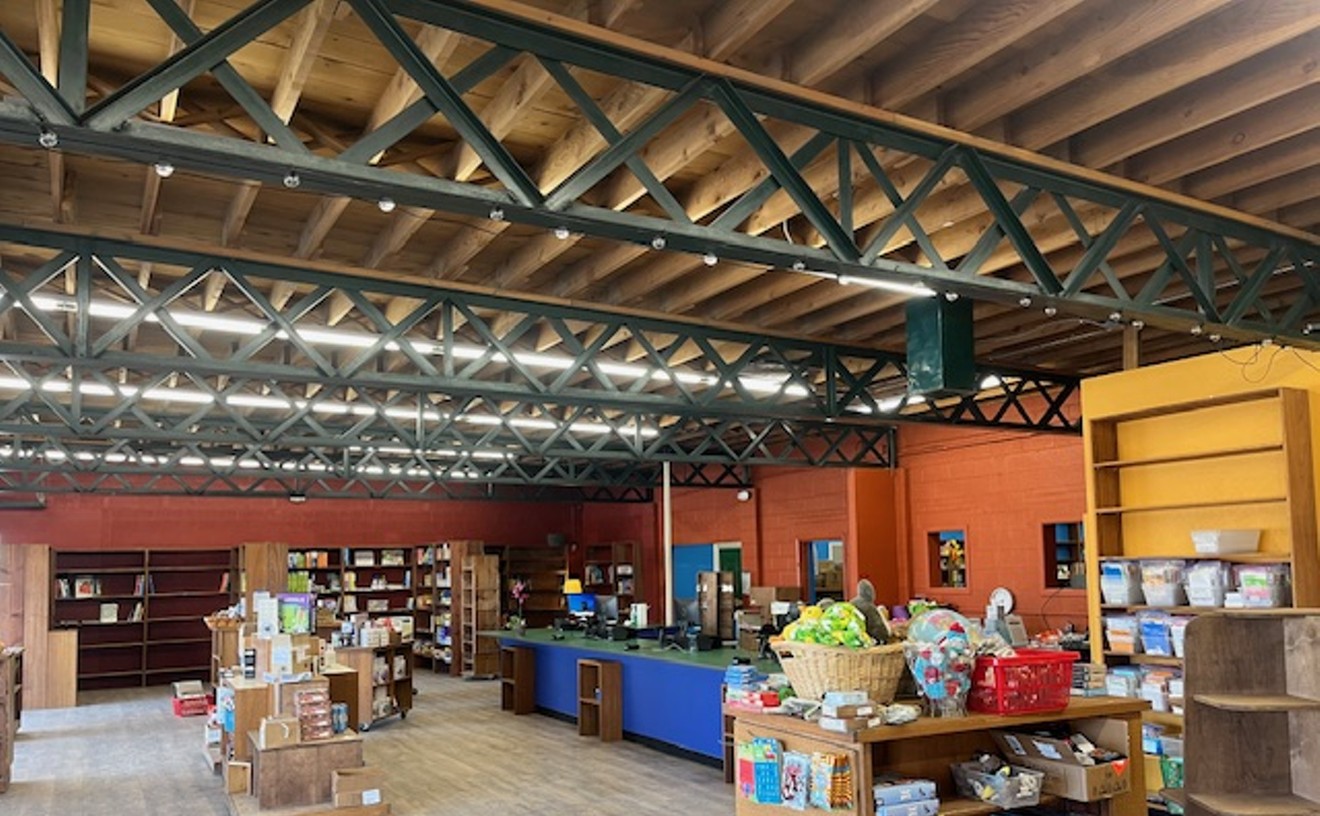The Butterfly Pavilion is getting ready to move to a new development in Broomfield where endangered pollinators — including 946 types of bees and 233 kinds of butterflies — will thrive.
These insects, which are dying at alarming rates around the world, pollinate everything from flowers to the food people eat. Without them, the entire agricultural system and the world's food supplies would be at risk.
The roughly 1,000-acre neighborhood, called Baseline, is a collaboration between the nonprofit, the development company McWhinney and the City of Broomfield. Baseline will be the world's first pollinator district, and will model best practices for other developers who want to turn urban and suburban areas into a habitat for these tiny cogs in our food chain.
“With development, we often see destruction and disturbance of habitat,” says Amy Yager, horticulture director at the Butterfly Pavilion. In contrast, the Baseline development will turn old agricultural land into developed land interspersed with diverse plants. There will be plenty of spaces restored to the natural shortgrass prairie, which was largely destroyed by modern agriculture. The community will limit pesticide use and grow a variety of native plants that will be nesting habitats for the bugs.
“At Baseline, we have the opportunity to create a living laboratory to put the research of the Butterfly Pavilion and [its Center for Invertebrate Research and Conservation] into action, locally,” says Kyle Harris, McWhinney's vice president of community development and general manager of Baseline.
The Pavilion will partner with Adams 12 STEM school to give students opportunities to work with horticulturists and entomologists to learn about pollinators firsthand.
Lisa Mason, a Colorado State University extension horticulture agent in Arapahoe County, praises how the pollinator district will engage each community member. “We have a lot of demonstration gardens out there. But this one seems very holistic,” Mason says. "The majority of the population lives in urban areas, and we need to all work together to figure out how to support pollinator populations in urban areas."
While the Butterfly Pavilion hopes the neighborhood will be a more hospitable place for pollinators, the people living in pollinator districts will also benefit from living in a beautifully landscaped area where plants bloom at different times throughout the summer. The colors will be the most shocking difference between Baseline and other new developments, Yager says: “No matter where you are, you can look and see the beauty and interactions between plants and pollinators."
McWhinney is planning a district that will be financially feasible for other communities to replicate; part of that is making sure the project is affordable. “A program that is cost-prohibitive is unlikely to scale across other communities, which we would view as a failure,” Harris says.
The Butterfly Pavilion will relocate from its current home in Westminster to Broomfield permanently by 2023.
The Insectival take place from 9 a.m. to 5 p.m. Saturday, July 13 at the Butterfly Pavilion, 6252 West 104th Avenue, Westminster. Get more information at 303-469-5441 or butterflies.org.
[
{
"name": "Air - MediumRectangle - Inline Content - Mobile Display Size",
"component": "12017618",
"insertPoint": "2",
"requiredCountToDisplay": "2"
},{
"name": "Editor Picks",
"component": "17242653",
"insertPoint": "4",
"requiredCountToDisplay": "1"
},{
"name": "Inline Links",
"component": "18838239",
"insertPoint": "8th",
"startingPoint": 8,
"requiredCountToDisplay": "7",
"maxInsertions": 25
},{
"name": "Air - MediumRectangle - Combo - Inline Content",
"component": "17261320",
"insertPoint": "8th",
"startingPoint": 8,
"requiredCountToDisplay": "7",
"maxInsertions": 25
},{
"name": "Inline Links",
"component": "18838239",
"insertPoint": "8th",
"startingPoint": 12,
"requiredCountToDisplay": "11",
"maxInsertions": 25
},{
"name": "Air - Leaderboard Tower - Combo - Inline Content",
"component": "17261321",
"insertPoint": "8th",
"startingPoint": 12,
"requiredCountToDisplay": "11",
"maxInsertions": 25
}
]












